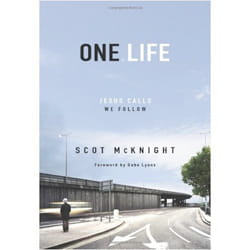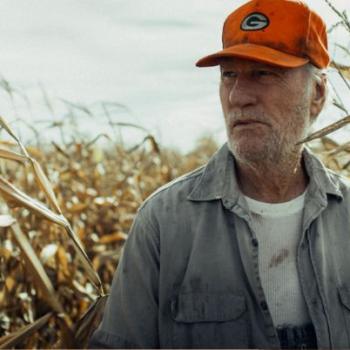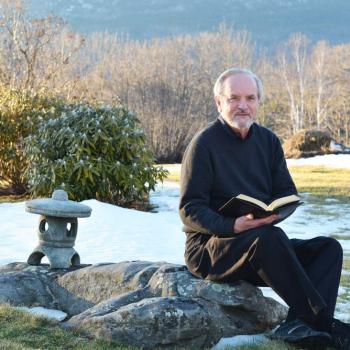An Interview With Scot McKnight
Editor's Note: We are beginning a series called The Preacher's Bookshelf, in which we interview authors of books that might be of interest to pastors and preachers. In this installment, we interview Scot McKnight, a widely esteemed New Testament scholar, speaker, and blogger extraordinaire. Since Dr. McKnight's excellent Jesus Creed blog is hosted at Patheos, we're thrilled to begin the series with a member of the Patheos family.
 Dr. McKnight's One.Life: Jesus Calls, We Follow hit bookstores last month.
Dr. McKnight's One.Life: Jesus Calls, We Follow hit bookstores last month.
What's the basic hunch of the book, its most essential claim, and why do you think it's so important?
The question I'm asking in this book is a big one: What is the Christian life? I contend that one of the most common ways this is addressed is with a simple answer, though rarely stated this clearly: "We live a Christian life by doing pious Christian things—like praying, reading my Bible, going to and church, witnessing." Yet Jesus, while clearly for such things, defined the "Christian life" with utter clarity: Follow me. And that means giving our one and only life to Jesus and to his kingdom vision.
Once we define the Christian life as following Jesus, everything changes. We can no longer say, "I've been a good Christian today because I've prayed, read three full chapters of the Bible, and done things other Christians see as pious." Instead, we are asked by Jesus if we loved God and others in the way that he did, if we sought justice, if we pursued peace, if we conducted ourselves in holiness, and if we walked in the ways of wisdom.
Too often we settle for the measurable, I fear, and neglect the bigger picture. Jesus criticized his contemporaries for tithing on herbs but neglecting justice, mercy, and faithfulness.
We are facing a new generation of postmoderns. Every study that comes out—and no generation has been studied more than this one—reveals significant shifts in this generation. What perhaps will matter most is not our church building or our church budget or our church attendance or even our church worship, but what will matter is "how did you treat the least of these?" This generation is asking the church to be followers of Jesus again.
What can pastors and preachers learn from this book for their own spiritual lives? How can it help them minister to their congregations?
A week ago I got a letter from a pastor who told me this book was challenging him to re-examine his own life to see if it was in tune with the kingdom vision of Jesus. Another leader wrote me this week and told me the book was a delight to read but was "messing" with him and his wife in good ways because it was probing into where the heart is. Another pastor told me they were going to give it to "new members" in their church.
But my hope is that this book will help pastors in these ways: 1) summon them one more time to listen to and follow Jesus and not just be church leaders; 2) to provide grist for sermons; but even more 3) to be a "church membership" or "discipleship" class.
There's another sneaking suspicion of mine here: I hope this book will bring together broken-faith families. And it's happening: a woman told me she read a chapter with her son who is struggling with the faith and they talked about the chapter for over an hour. I hope this book will help parents see what the next generation thinks the church should be all about. I hope this book will be read by young disenfranchised followers of Jesus and will become a springboard for discussion with traditional-faith parents.
Are there any particular anecdotes or stories (whether or not they are told in the book) that crystallize its message?
I've given a couple above, but let me tell another (not in the book). One time I had finished lecturing on the contents of this book—the kingdom vision of Jesus for his followers—and was returning to my office when a student ran up from behind me and was visibly agitated. She asked out of a grieved heart, "Why wasn't I taught this in my church? I grew up in the church, I went to all the right things, I attended Sunday School and youth groups and camps. But all we ever got was the same-old, same-old. I wanted something more. Jesus' teachings are the more I wanted."




